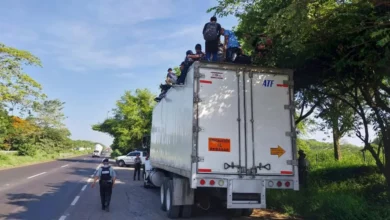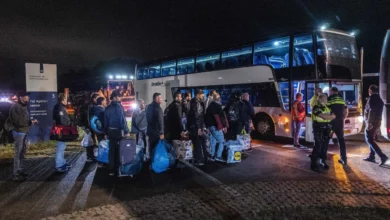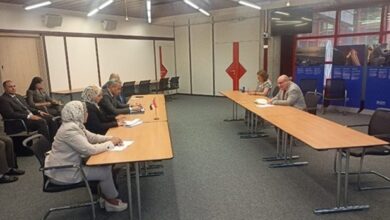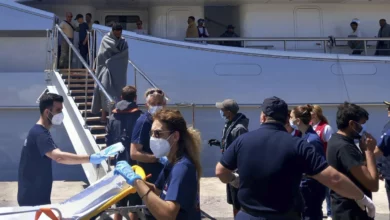Rome — Scores were missing on Wednesday after a small boat carrying more than 200 African migrants fleeing Libya capsized in rough seas, with Italian coast guards managing to pluck 48 survivors from the water.
Coast guard spokesman Vittorio Alessandro told AFP from the southern Italian island of Lampedusa that a helicopter crew aiding the high-seas rescue operation had spotted some 20 bodies near the boat.
"We are still hoping. Our boats and helicopters have thrown all sorts of lifejackets and lifeboats to allow people to hold on," Alessandro told AFP.
Around 130 people who were on the boat are believed to be missing, while a fishing boat in the area rescued three more survivors.
Helicopter pilots quoted by Italian news agency ANSA said they had seen "dozens" of corpses in the area including those of small children.
"We hoped one of them would raise their arm. But no-one did," one said.
Shaken-looking survivors wrapped in thermal blankets were helped off a coast guard boat on Lampedusa, television images showed. Some including a heavily pregnant woman were immediately taken to hospital in ambulances.
"They were in very, very, very difficult conditions. They were all suffering from hypothermia," said Michele Prosperi, a volunteer with the charity Save the Children who has been helping the thousands of migrants arriving on the island.
Prosperi said there was one unaccompanied minor among the survivors.
"We are very worried. We are waiting for news about the boat," said Prosperi, adding that the survivors would be put up in a former US base on the tiny island, which is nearer North Africa than to mainland Italy.
The International Organisation for Migration, based in Geneva, said it estimated some 300 people were on the boat that capsized in the early hours of the morning and that more than 250 were therefore missing.
"The survivors are all in a state of shock. One man told me he had lost his one-year-old son. One of the two surviving women told me how she had lost her husband," said the IOM's Simona Moscarelli, who is in Lampedusa.
Coast guards said in a statement that the boat was just 13 meters long (42 feet) and had departed two days ago from the town of Zuwarah in western Libya. The statement said the people on the boat were mostly Eritreans and Somalis.
Hundreds of African refugees from Libya — many of them migrant workers stranded after the start of an uprising against Libyan leader Moamer Kadhafi and the beginnings of a civil war — have landed in Italy in recent days.
Mussie Zerai, an Eritrean Catholic priest based in the Vatican who has helped coordinate efforts to rescue some of the refugees in the past, criticised European authorities for failing to evacuate them.
"These deaths were avoidable if Europe had listened," Zerai told AFP.
"If Europe had acted, we wouldn't be counting bodies now. This is a real tragedy. There are entire families that are dying," he said.
"With all the ships deployed there, the Mediterranean is one of the most controlled seas. I don't understand how these things can happen," he added.
More than 20,000 migrants fleeing continuing unrest in Tunisia have also arrived on Lampedusa in recent weeks, sparking a humanitarian emergency.
Migrants and refugees often travel in rickety and overcrowded wooden fishing boats and there have already been smaller recent accidents at sea.
The accident happened some 40 nautical miles (74km) south of Lampedusa in waters that are under the jurisdiction of Malta.
A distress signal from the refugee boat was received overnight by Maltese authorities and officials in Lampedusa thanks to a satellite phone on board.
Alessandro said the boat was caught in high seas whipped up by strong winds and overturned after passengers panicked.
Because of the storm and the panic on board, "the boat capsized and the passengers were thrown into the sea," Alessandro said.
"The darkness and weather conditions made the search for the missing people difficult but it is still continuing," he said.




